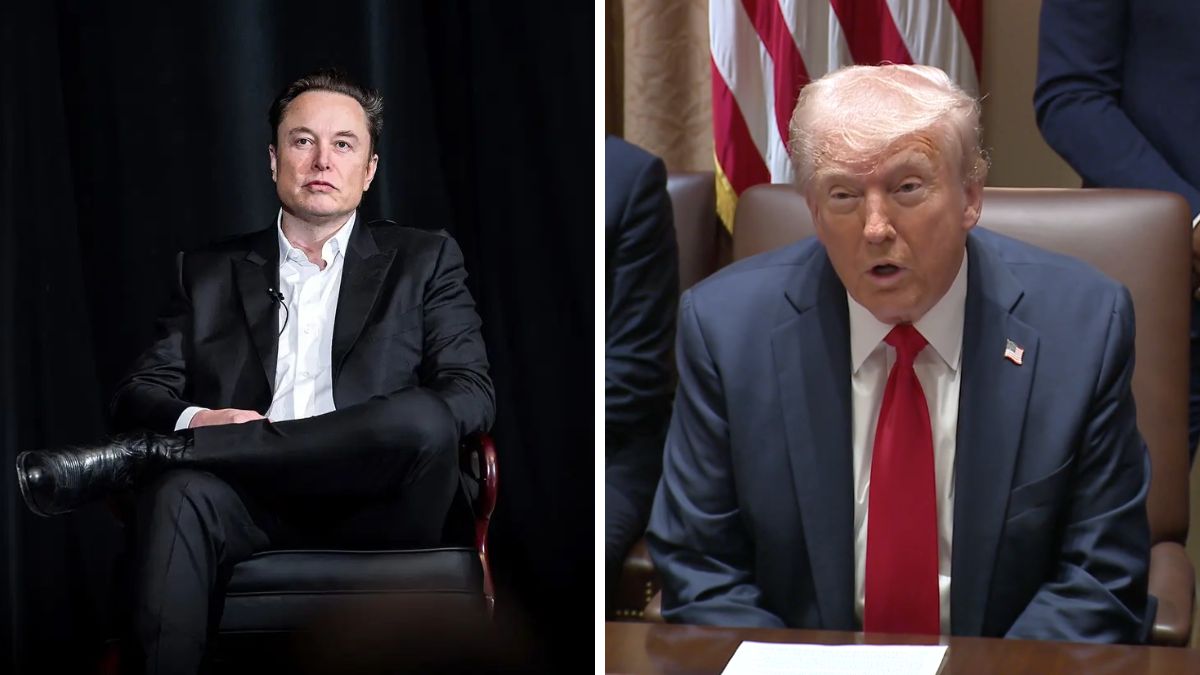
The conflict between Donald Trump and Elon Musk continues to escalate. Now, the president has warned that he will look into whether he can deport the billionaire, as Musk is not originally from the United States. But can the Republican president really expel the entrepreneur? What is Elon Musk’s nationality? Here’s what we know.
What is Elon Musk’s nationality?
Elon Musk was born in South Africa and became a Canadian citizen in 1989. He later naturalized as a U.S. citizen in 2002.
ALSO READ What are the new Costco store hours? We’ll tell you
Why does Trump want to deport Elon Musk?
Musk’s nationality is not the reason that could trigger his deportation. On Tuesday, during statements to the press, the U.S. president spoke about the federal budget bill, which Musk opposes. When asked about the possibility of expelling the Tesla CEO, Trump said he would look into it and might even ask the Department of Government Efficiency (DOGE) to investigate him and cut all subsidies to his companies.
Following these remarks, Elon Musk responded via his X account, saying that, for now, he would refrain from responding to the threats.
Can Donald Trump deport Elon Musk?
A foreign national can only be deported from the U.S. if they have violated the country’s immigration laws. A person can be detained and removed if they:
- Entered the country illegally
- Committed a crime or broke U.S. laws
- Repeatedly violated immigration rules (such as overstaying a visa or breaking residency conditions)
- Are involved in criminal activity or considered a threat to public safety
In Musk’s case, he holds U.S. citizenship, so his presence in the country is not illegal. In order for him to be expelled, he would need to have committed one of the actions listed above. So far, he has not been investigated or charged with any such offense, meaning his deportation cannot proceed under current U.S. law.
ALSO READ How much will it cost to ride in Tesla’s Robotaxi? Here’s what Elon Musk says
Why did Donald Trump and Elon Musk fall out?
In November 2024, after winning the presidential election, Donald Trump surprised many by appointing Elon Musk to head the newly created Department of Government Efficiency (DOGE), tasked with reducing public spending. Musk, a strong supporter of Trump, had actively backed his campaign since July, following an assassination attempt at a rally in Butler, Pennsylvania. Through his political action committee “America PAC,” Musk invested nearly $300 million to support Trump, according to Open Secrets.
However, their relationship soured quickly. In May 2025, Musk resigned after publicly opposing Trump’s new tax bill, calling it a “disgusting abomination” on X. Trump fired back via Truth Social, announcing he was revoking an executive order that encouraged the purchase of electric vehicles—a move that directly impacted Musk’s business interests.
The clash intensified when Musk claimed he had never even seen the tax bill, which he said was passed so quickly that most members of Congress didn’t have time to read it. To top it off, Musk suggested that Trump could be linked to the infamous “Epstein list”—a collection of nearly 60 declassified documents related to the legal case against Jeffrey Epstein’s former partner, who was convicted of sex trafficking minors. While appearing on the list does not imply guilt, the allegation sparked another political firestorm.









